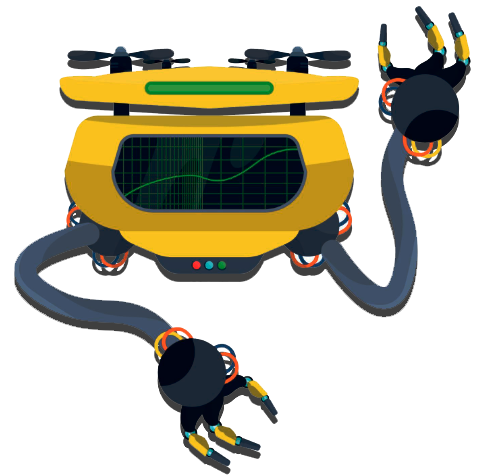Modern logistics is no longer just about getting goods from point A to point B. It’s about speed, visibility, and precision — especially in a world where delays cost money and supply chain breakdowns hit every industry. That’s where the partnership between Airbus CNES comes in, fusing aerospace engineering with satellite intelligence to track cargo anywhere on Earth.
From smart containers to real-time alerts, Airbus and CNES (Centre National d’Études Spatiales) are changing how companies think about suivi des marchandises. Using advanced géolocalisation technologies, they’re removing blind spots in global transport — and reshaping the future of shipping.
Outdated Systems, Big Problems
Traditional tracking relies heavily on outdated tools: barcodes, manual inputs, RFID tags, and Wi-Fi signals. These might work in a warehouse — but what happens when your shipment crosses the Atlantic or passes through a remote border checkpoint?
That’s where problems arise:
- Long gaps between location updates
- No visibility in oceans, deserts, or rural areas
- No access to environmental or security data
- Risk of spoilage, theft, or misrouting
For sensitive goods — think pharmaceuticals, defense materials, or luxury items — that’s a risk no company can afford.
CNES: Building the Satellite Backbone for Geolocation
As France’s national space agency, CNES brings serious expertise to this partnership. With decades of leadership in satellite design and Earth observation, CNES provides the infrastructure that powers this next-gen cargo tracking.
Here’s what CNES contributes:
- Satellite constellations like Galileo and Argos
- Real-time telemetry platforms
- Earth imaging systems to assess weather and terrain risks
- Geolocation systems with a precision of just a few meters
Thanks to CNES’s infrastructure, tracking doesn’t stop at the port. Whether your shipment is on a cargo plane over the Pacific or in a truck crossing the Sahara, its position can be logged — accurately, continuously, and securely.
Airbus: Engineering Smart Shipments with Built-In Intelligence
While CNES provides the space-side tech, Airbus brings the smart logistics layer. Best known for aircraft, Airbus is also a pioneer in IoT sensors, AI-powered dashboards, and supply chain analytics.
Airbus enables real-time suivi des marchandises by embedding intelligence into every container:
- Smart sensors: Track temperature, humidity, and vibrations
- Blockchain logs: Guarantee tamper-proof records of every movement
- Cloud platforms: Centralize tracking for customers and logistics teams
- Predictive alerts: Notify users of delays, reroutes, or suspicious activity
The result? End-to-end visibility — from the factory floor to the final delivery site — with no gaps, guesswork, or delays.
Why Géolocalisation Is a Game-Changer in Logistics
Géolocalisation isn’t new, but the way Airbus and cnes airbus apply it changes everything. Instead of basic GPS, they layer it with satellite surveillance, AI forecasts, and route intelligence.
Here’s how this reshapes logistics:
- Live position tracking: Updated every few minutes
- Global coverage: Works in areas with no cell towers or internet
- Automated alerts: For temperature spikes, delays, or handling issues
- ETA forecasts: Adjusted in real-time using weather and traffic data
This kind of géolocalisation ensures that nothing is ever lost, late, or left unmonitored.
Case Study: Vaccine Shipments with Real-Time Tracking
In 2022, a pharmaceutical company partnered with airbus cnes to deliver vaccines to clinics across West Africa. These shipments required precise temperature control and route monitoring — failure could mean spoilage or health risks.
The results?
- Location updates every 10 minutes via satellite
- Temperature logs throughout the journey
- Motion sensors that alerted teams to rough handling
- Delivery success rate increased by 34%
- Spoilage losses cut by over 70%
This pilot proved that combining suivi des marchandises with géolocalisation and real-time monitoring isn’t just a luxury — it’s a logistical upgrade that saves time, money, and lives.
More Than Business: Environmental and Humanitarian Impact
The benefits of the cnes airbus model go far beyond corporate profits. By using their technology for humanitarian logistics, they help NGOs deliver aid faster and more transparently in areas struck by war, natural disaster, or famine.
At the same time, environmental researchers use this tracking data to:
- Measure fuel efficiency
- Reduce carbon footprints
- Identify wasteful or polluting routes
Even small improvements in delivery routes — based on satellite insights — can reduce emissions and operating costs significantly.
Security and Compliance for Sensitive Shipments
Sensitive goods come with strict regulations. Whether it’s radioactive medical materials, military-grade equipment, or restricted tech components, compliance is key. Governments demand complete visibility into movement, handling, and custody.
To meet these demands, airbus cnes have built:
- Encrypted data transmission to prevent interception
- Tamper-evident digital logs to prove chain of custody
- Regulatory compliance tools aligned with EU, U.S., and UN protocols
So when border control or customs ask for detailed records, you have everything — down to the second and the meter.
Looking Ahead: Making Space-Tech Logistics Accessible to All
While much of this innovation has focused on high-value or mission-critical shipments, the goal is clear: bring géolocalisation and suivi des marchandises to the broader market. By 2030, Airbus and CNES aim to integrate satellite tracking into everyday shipping.
What’s in development:
- Tiny GPS chips for parcels and e-commerce
- LEO satellites focused entirely on cargo
- APIs and developer tools to let smaller companies build on satellite data
Think of it like the internet in the ‘90s — right now it’s new and powerful, but soon it’ll be everywhere.
